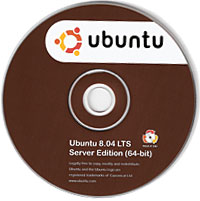When Canonical revealed the results of its Ubuntu Server Edition 2009 Survey, some pundits thought the news was designed to attract more customers to Canonical's server software. In reality, I think Canoncial had a far different -- and far wiser -- goal for the survey. Here it is. First, let’s look at Canonical’s three major server challenges:

 When Canonical revealed the results of its Ubuntu Server Edition 2009 Survey, some pundits thought the news was designed to attract more customers to Canonical’s server software. In reality, I think Canoncial had a far different — and far wiser — goal for the survey. Here it is.
When Canonical revealed the results of its Ubuntu Server Edition 2009 Survey, some pundits thought the news was designed to attract more customers to Canonical’s server software. In reality, I think Canoncial had a far different — and far wiser — goal for the survey. Here it is.
First, let’s look at Canonical’s three major server challenges:
How do you convince independent software vendors (ISVs) to certify their applications on Ubuntu Server Edition?
How do you convince major server hardware makers to certify and/or offer Ubuntu Server Edition to their customers?
How do you gain mind share and market share when Windows Server, Novell and Red Hat have such strong server positions?
The answer to all three questions is the same: Canonical continues to promote its Ubuntu Server Edition research to show ISVs and server makers that they need to climb aboard the Canonical Express.
The survey results, based on nearly 7,000 participants, shows 90 percent of respondents think Ubuntu Server Edition is enterprise ready. You can download the complete survey results (as a PDF) from WorksWithU here.
Much like Canonical’s survey, our own WorksWithU 1000 list – which tracks Ubuntu deployments worldwide – reveals growing momentum for Ubuntu Server Edition.
Winning Over Skeptics?
But the server market will take multiple years – not months – for Canonical to master. Competition looms everywhere. I’m surprised by Novell’s continued – and accelerating – momentum with SUSE Linux. I’m impressed with Red Hat’s mind share and market share. And I’m somewhat skeptical of Canonical’s channel efforts so far (see how Canonical ranks vs. Novell and Red Hat according to The Open Source 50 channel report).
So far, Sun Microsystems is the only server maker that has aggressively certified its servers for Ubuntu. Dell, IBM and Hewlett-Packard continue to take a wait-and-see approach on Ubuntu Server Edition. And I certainly don’t blame those hardware makers for dragging their feet, since they already have their hands full with Windows Server, Novell and Red Hat.
Redefining the Linux Landscape?
For Canonical, it’s early in the server game. We’re going to see the company make multiple mistakes in the months ahead. But the Ubuntu Server Edition 2009 Study is a step in the right direction.
What’s next? Watch for Canonical to make some strategic server months this April. And watch for much, much stronger messaging around Landscape – Canonical’s remote administration tools for Ubuntu servers, desktops and mobile devices.
Remember: In the 1990s Microsoft used Systems Management Server to get large enterprises to deploy Windows NT Server, NT Workstation and Windows 95.
Canonical will leverage a similar corporate strategy with Landscape and Ubuntu. Stay tuned.
WorksWithU is updated multiple times per week. Don’t miss a single post. Sign up for our RSS and Twitter feeds (available now) and newsletter (coming in 2009).
About the Author(s)
You May Also Like


